Why Study In Russia
Why Russia
Russia is a highly educated country with over half of its residents holding a university degree. Russians have rich, centuries-old educational traditions. Russian universities provide their students with comfortable studying and living conditions and help them adapt to the country. Russian universities train a wide variety of specialists, both in engineering and the humanities, and regularly place in the top of international rankings. Education in Russia is much more affordable than in the USA or UK. Moreover, international students have the opportunity to study for free at the expense of the Government budget. Each year Russia accepts students from all over the world, from nearly 170 countries, and you can join them. |
| Traditions of Higher Educationin Russia |
 |
| Russian universities in World Universities Ranking |
Advantages of Education in Russia
According to the Organisation for Economic Cooperation and Development (OECD), Russia has the most educated population in the world, outperforming Canada, Japan, Israel and the USA. More than half of Russians have higher education qualification. More than 200,000 people from 168 countries come to study at Russian universities. There are a lot of advantages to study in Russia, here are just a few:
Comprehensive University Education
In Russia, you can acquire in-depth, fundamental knowledge in all subjects, but the country is best known for its strong academic schools in physics, mathematics and natural sciences. Russia is a recognised world leader in training mathematicians, physicists, chemists, geologists, engineers, programmers, physicians, and specialists in other natural sciences. This is confirmed by the positions of Russian universities in world rankings (For more details, see the "Russian Universities in World University Rankings" section).
A Wide Range of Universities and Study Programmes
Russian universities also offer preparatory programmes (training for enrolment on Bachelor’s, Master’s and Specialist Degree courses), short courses (summer university, a single term in Russia, summer schools), Russian as a foreign language courses, professional development and additional vocational training.
Optimum Ratio of Price and Quality of Education
In 2017, the cost of studying at Russian universities in full-time Bachelor’s Degree Programmes started from 89,000 roubles a year (1,500 US dollars), depending on the subject studied (according to the standards established by the Russian Ministry of Education and Science). The maximum tuition fee at the most prestigious universities in the capital was as high as 463,000 roubles a year (7,900 US dollars), according to data from ratings agency Expert1.
 © TPU
© TPU
If you are considering universities located outside Moscow or Saint Petersburg, tuition and accommodation costs will be lower: prices in the regions are much lower than in the capital (see university websites for more detailed information on the tuition fee).
Funded Tuition
 © RUDN University
© RUDN University
Russia is one of the few countries to offer foreign citizens the opportunity to receive free tuition. Every year, the Russian government awards several thousand scholarships (quotas) to international students. For example, in 2017 universities were allocated 15,000 quotas. In addition, some categories of foreign citizens, including compatriots, may apply for state-funded places on equal terms with Russians but outside the quotas. Another possibility is taking part in university academic competitions: the winners and laureates of these competitions are given preferential terms when enrolling at leading Russian universities (on a quota basis and for state-funded places).
Opportunity to Learn Russian
Russian is spoken by about 260 million people worldwide and some 10.5 million foreigners are regularly learning Russian. Russian universities offer different Russian language programmes, including courses, summer schools, and distance learning. In preparatory courses, international students take a year-long course in the Russian language and, for students who are enrolled in state-funded places (government scholarships), it is provided free of charge.
Opportunity to Study in English
 © National Research Nuclear University MEPhI
© National Research Nuclear University MEPhIOpportunity to Obtain Dual Diplomas
In 2003, Russia signed the Bologna Declaration, assuming several obligations as part of the creation of a common educational space of participant countries. Diplomas of Russian universities are recognised in most countries. This procedure is facilitated by intergovernmental agreements of Russia with more than 60 countries, including Finland, Spain, Cuba, India, Vietnam, China, Venezuela, and Namibia, while in June 2015 this document was also signed with France. Furthermore, many Russian universities are implementing joint programmes with foreign universities and are issuing dual diplomas to their graduates. In other words, by studying in Russia you can receive a Russian diploma and a diploma from a European university.
Comfortable and Well-Equipped Campuses and Dormitories
In terms of study facilities, Russian universities are a match for many western universities. High-level equipment for laboratories, scientific centres and study facilities are now a reality of student life today. Most Russian universities have their own dormitories with a relatively low cost of accommodation (For more details, see the "Аccommodation" section).
Easy Adaptation for International Students
Russia is a multinational country where representatives of the most diverse countries and cultures can easily adapt to life here. Russia is home to more than 200 ethnic groups that speak more than 100 different languages and dialects. The Russian constitution guarantees freedom of conscience: Christians, Muslims, Buddhists, Judaists, and representatives of other faiths peacefully coexist here. The country's multinational and ethnic structure illustrates the diversity of all spheres of life, from cultural to domestic. Unsurprisingly, many foreigners arriving in Russia feel at home here. Russian universities are proud of their long experience in the training and acclimatisation of international students: supervisory programmes are arranged for first-year students and there is an established network of student communities.
Different Climate Zones
Dazzling Culture
Most people associate Russia with its culture, and Russians rightly take enormous pride in it. Russia has given the world many great writers, poets, philosophers, composers, artists and musicians: Leo Tolstoy, Anton Chekhov, Feodor Dostoyevsky, Nikolai Rerikh, Sergey Rakhmaninov, Boris Pasternak, Pyotr Tchaikovsky, Sergey Eisenstein, Mstislav Rostropovich... Literature, ballet, classical music, architecture, painting, theatre and cinema: this is how Russia wins the hearts of people the world over. Russian cities today are centres of cultural life, where exhibitions, festivals, concerts, shows, performances and other cultural and entertainment events take place on a national and international level.
Sports
Russia is a nation of sports enthusiasts that has given the world some of its greatest athletes: Irina Rodnina, Vyacheslav Tretyak, Maria Sharapova, Evgeny Plushchenko, Alexander Ovechkin, Elena Isinbaeva, Alexander Povetkin, and others. More than 60% of residents and 71% of students in Russia are involved in sport. Sports facilities include 70,000 gyms, 140,000 sports pitches and fields, and 4,800 swimming pools, accessible to all.
Russian universities typically have their own sports facilities and are well placed to offer students excellent opportunities to get involved in sport. Sports teams are formed at universities, many of which win prestigious competitions, including Universiades.
The country has hosted international sporting events on many occasions; in 2014, it hosted the Winter Olympics in Sochi and a Formula 1 race. The 2018 FIFA World Cup and the 2019 Winter Universiade (2019) are the next major events on the calendar.
Student Benefits
 © KFU
© KFUExciting Student Life
Students in Russia are never short of something to do after class. They take part in sports competitions, contests, student festivals and other recreational events. Universities have their own student theatres, sports teams, volunteer associations and student construction teams. A unique creative outlet for Russian students is the humorous KVN games (Club of the Merry and the Quick-Witted): the best university KVN teams take part in a televised contest broadcast on a central Russian TV channel.
Year-Round Travel
The Bolshoi Theatre, the Tretyakov Gallery, the Pushkin Museum of Fine Arts, the Hermitage, and St. Isaac's Cathedral are Russian cultural sights known worldwide, attracting millions of tourists every year. However, this is merely the tip of the iceberg on the list of things worth seeing. 26 Russian cultural sites are included in the UNESCO World Heritage List. In addition to the Kremlin and Red Square, the UNESCO list includes the monuments of Novgorod, Suzdal, Vladimir, the Holy Trinity Monastery of St. Sergius, Lake Baikal, the volcanos of Kamchatka, the Golden Mountains of Altai, the Novodevichy Convent, the Curonian Spit, and others. Many universities organise trips for students. The choice is almost endless: from the Golden Ring spanning 8 ancient Russian cities to traveling the legendary route of the Trans-Siberian Railway.

QS World University Rankings

ARWU (Academic Ranking of World Universities)

It is compiled by the Institute of Higher Education of Shanghai Jiao Tong University since 2003. The main emphasis in the preparation of the rating is on the research activities of universities and the role of subjective assessments (various surveys) is reduced to zero. The most important indicators according to which the university is assigned a particular position include the number of Nobel Prize, Fields Medal winners among the staff and graduates, the number of frequently cited researchers, as well as publications in scientific journals (Nature, Science). The rating includes the total of 500 universities.
THE (THE World University Rankings)

Traditions of Higher Education in Russia
The country has centuries-old traditions of higher education. The first university in Russia was founded in 1687 and called the Slavonic, Greek, and Latin Academy. The renowned Moscow State University was established by Mikhail Lomonosov in 1755. Since then, many universities have appeared throughout Russia – from Vladivostok to Kaliningrad. Russia has given the world a multitude of outstanding intellectuals who have made great discoveries and inventions, and over 40 of them have been awarded the Nobel Prize. Currently, there are 896 universities in 85 regions of Russia that accept international students. You have a unique opportunity to come to Russia and learn about Russian academic traditions.





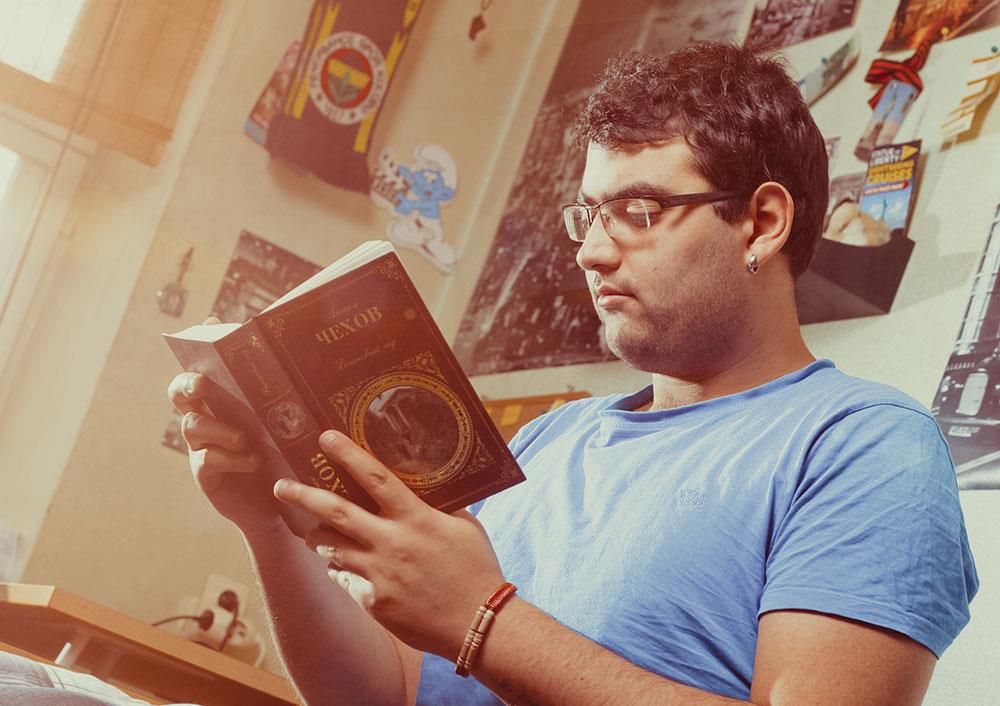
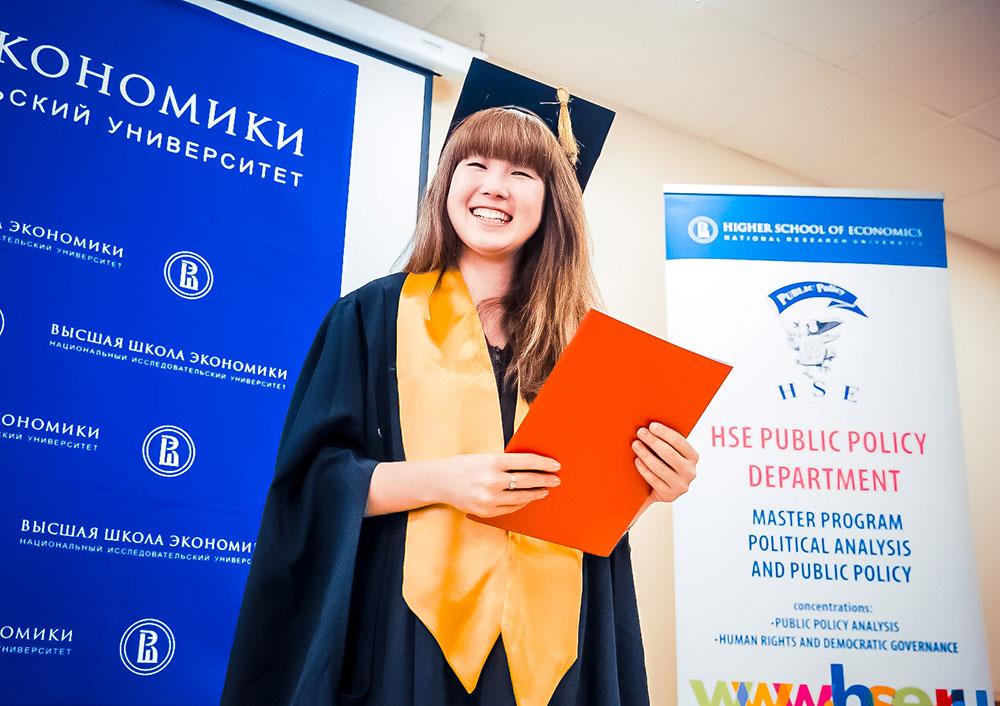
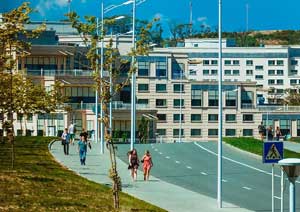

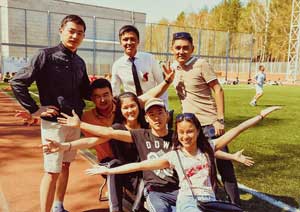
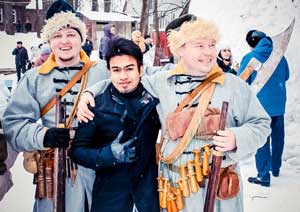
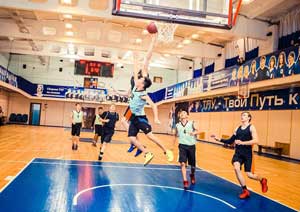

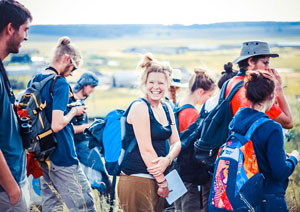


No comments